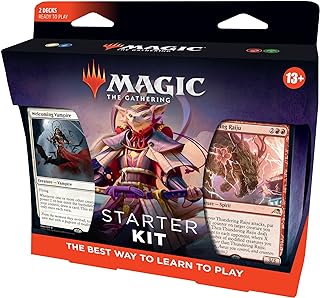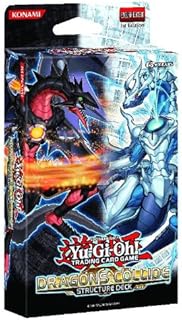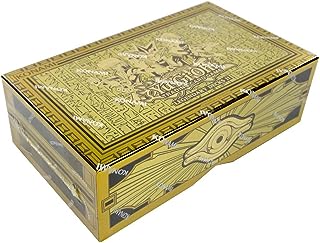5 important factors worth considering when looking for the best magic the gathering decks
In the world of Magic: The Gathering, building the perfect deck is about more than just picking cards – it’s about combining strategy, creativity, and personal style. Every decision you make when putting together a deck is important, bringing together instincts and careful planning, as well as the excitement of competition and showing who you are. Building a deck is all about blending different cards together to create something that is uniquely yours, challenging you to adapt to the game’s changes while still staying true to your own style. As we explore the many factors that go into picking a deck, we take a journey where our love for the game and our logical thinking work together to make our Magic: The Gathering experience the best it can be.
See our guide to the best magic the gathering decks.
Playstyle
When buying Magic: The Gathering decks, knowing how you like to play is important. Do you like to attack quickly in battles, or do you prefer to control the game with clever plans? Maybe you enjoy creating combos with powerful card combinations to win. Your playing style affects how you enjoy the game and how you make decisions.
Choosing a deck that matches your style can make playing more exciting. Picture the excitement of using an aggressive deck that suits your attacking style perfectly, or the satisfaction of outsmarting opponents with a well-crafted control deck. The right deck can give you confidence in battles and help you win in memorable ways. Embrace your style and use it to pick decks that show who you are as a player and let you explore different strategies that suit your gaming preferences.
Budget
When you start playing Magic: The Gathering, it’s important to consider how your budget can impact your deck-building choices. While it may be tempting to go for expensive and rare cards, winning isn’t always about how much you spend. Building a competitive deck on a budget requires strategic thinking and creativity. These limitations can actually bring out the best in players, pushing them to think differently and come up with decks that perform well while being resourceful.
Creating a budget-friendly Magic: The Gathering deck can be a rewarding challenge. It allows players to feel accomplished without spending a lot of money. It also makes players think carefully about every card they choose. By finding the right balance between cost and effectiveness, players can discover new strategies and ways to play that might not be found in expensive decks. Ultimately, what defines a player’s success is their creativity and dedication to building decks, not how much money they have. Success comes from passion for the game, not the size of your wallet.
Format legality
When you’re starting out in Magic: The Gathering, it’s important to understand the rules about what cards you can use in your deck. Following these rules not only keeps the game fair but also lets players show off their skills and strategies. It helps create a sense of community in the Magic world and gives players a chance to come up with all kinds of new and exciting decks.
Even though it might be tempting to use cards that aren’t allowed in certain formats to make your deck stronger, sticking to the rules leads to more satisfying games. Finding a balance between trying out new ideas and following the rules helps keep the game fair and lets players face off in a competitive but friendly way. Following the rules isn’t just about obeying them – it’s a key part of what makes Magic: The Gathering such a deep and engaging game.
Card rarity
When you start playing Magic: The Gathering, the rarity of cards is really important for how you build your deck and play the game. It can be really cool to have rare cards in your collection because it makes your deck special and exclusive. But it’s also important to not only focus on rarity – you need to think about how well the cards work together and how you can use them strategically during a game. The most important part of the game is how the cards work together and the choices you make during the game, not just showing off rare cards.
While finding a rare and powerful card is exciting, it’s essential to remember that the most important part of Magic: The Gathering is the strategy and skill involved in playing the game. Making a deck that includes cards of different rarities that work well together is usually better than just having rare cards. The game is a test of thinking, strategy, and being able to change your plans quickly, where the real magic comes from how all the cards work together to make the game fun and memorable.
Card synergy
When buying Magic: The Gathering decks, card synergy is essential. It’s all about how well the cards work together in a deck. Successful players know that each card should not only be strong on its own, but also help and enhance the abilities of the other cards in the deck. Card synergy makes gameplay more strategic, allowing players to create powerful combinations and outsmart their opponents.
Understanding card synergy is like mastering an art form in Magic: The Gathering. It takes a sharp eye for detail, a deep knowledge of how cards work together, and the ability to see how each move can lead to a game-changing play. A carefully crafted deck with great synergy can completely change the outcome of a match, impressing both the player and their opponent with the careful planning and execution that went into choosing each card.
Conclusion
In Magic: The Gathering, creating decks is like creating a piece of art. It’s not just a card game – it’s a way to show off your creativity and strategy. Each deck is unique and shows the player’s vision. It combines smart tactics with personal flair to create exciting moments. Whether you’re casting a bunch of spells or making creatures work together perfectly, Magic decks tell a story of players trying to understand the game. Luck and skill are mixed together in a deck, making the experience more than just about the cards. It’s a journey full of friendship, competition, and the chance to discover new things.


